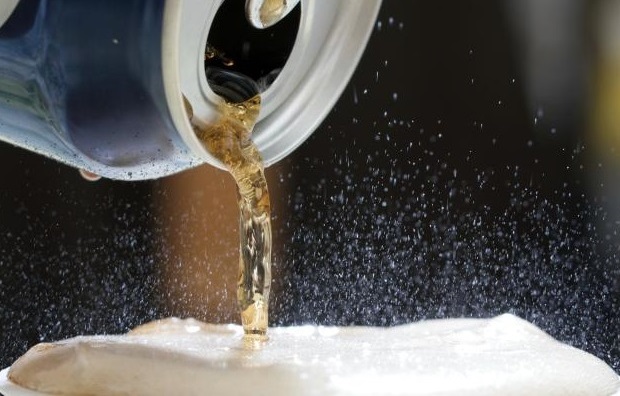

The human diet has included sucrose derived from sugar beets and sugar cane for centuries, and we’ve eaten sucrose from honey or fruit for millennia. But sucrose poses some technological challenges to food producers. For example, in acidic systems, it hydrolyzes, changes the product’s flavor and sweetness, and must first be dissolved in water because of its granular structure. Geopolitically, sugar cane is also typically produced, in regions located around the equator, which tend to have unstable climates and politics. These instabilities can result in large price fluctuation.
Compared to sugar cane, high fructose corn syrup is more stable in acidic beverages and foods. This catapulted HFCS’s popularity. As a syrup, corn syrup requires only minor dilution before use and can be stored and mixed in tanks.
These are the primary reasons HFCS saw exponential growth and quick acceptance in the food industry. Fruit juice, cereal, bread, yogurt, soda, mayonnaise, and ketchup are just a few of the many foods that contain HFCS. According to the Centers for Disease Control and Prevention (CDC), in the 40 years since the introduction of HFCS into the American diet, obesity rates have risen steeply.
Today, 36.5% of the American population is considered obese. In the 1950s, this figure was just 15%. In a study on two groups of rats fed the same number of calories, rats exposed to HFCS in their diets experienced more weight gain than the rats that ate granulated sugar. Those rats that ingested HFCS over a long period of time also showed an increase in triglycerides (fat circulating in the blood) and abdominal body fat.1
While different types of sugar, fructose and glucose, have the same chemical formula, they can have very different effects. Fructose is like any other sugar, but it affects brain and liver metabolism much differently than glucose. Unlike glucose, fructose isn’t significantly regulated by insulin. It promotes greater synthesis of liver fat than glucose, and liver fat is in turn more likely to produce insulin resistance. High fructose corn syrup should be avoided as much as possible.2 3
1 M. E. Bocarsly, E. S. Powell, N. M. Avena and B. G. Hoebel, "High-fructose corn syrup causes characteristics of obesity in rats: Increased body weight, body fat and triglyceride levels," Pharmacology, Biochemistry and Behavior, vol. 97, no. 1, p. 101-106, 2010.
2 G. A. Bray, "Potential Health Risks From Beverages Containing Fructose Found in Sugar or High-Fructose Corn Syrup," Diabetes Care, vol. 36, no. 1, p. 11-12, 2013.
3 M. F. Jacobson, "High-fructose corn syrup and the obesity epidemic," The American Journal of Clinical Nutrition, vol. 80, no. 4, p. 1081-1081, 2004.
Test
Test
Comment
Test Comment